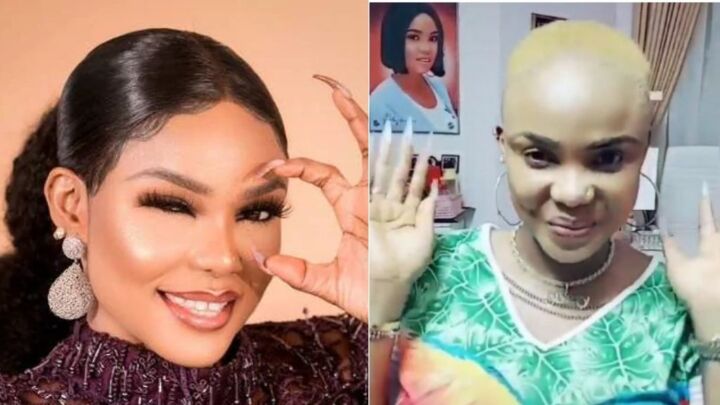Nollywood actress, Iyabo Ojo has come out to caution parents who allow their children to download social media app, TikTok. She recently had her say via her social media page, and Nigerians have been reacting.

According to him, even if TikTok is fun and good, it is clearly not for children and parents must realize that.
Iyabo Ojo then advised parents who want their children to be signed up on the app to ensure they put their ages on it so the app can automatically restrict what they can have access to.
Her words, ”I noticed that a lot of parents especially parents with kids of between 4 to 13 years old allow their kids download TikTok but I don’t think you know they neeed to put their age on it so that they are restricted to certain things they can see on TikTok because TikTok is not an app for kids. A lot of things go on on TikTok and they probably might get confused especially when they get to see a whole lot of things that I don’t think you want to grow up and become.”
“I notice that a lot of parents know that you can put your child’s age on it so that it restricts what they are going to be seeing on TikTok. They would see things that have to do with their age, they would see things that have to do with kids but when you allow them download TikTok and they are just handling a TikTok account, they are going to be seeing a whole lot of things there that you might not really want them to see but you wouldn’t know. TikTok is fun, it’s good but it is not for children.”
WOW.
Nollywood is a sobriquet that originally referred to the Nigerian film industry. The origin of the term dates back to the early 2000s, traced to an article in The New York Times. Due to the history of evolving meanings and contexts, there is no clear or agreed-upon definition for the term, which has made it a subject to several controversies.
The origin of the term “Nollywood” remains unclear; Jonathan Haynes traced the earliest usage of the word to a 2002 article by Matt Steinglass in the New York Times, where it was used to describe Nigerian cinema.
Charles Igwe noted that Norimitsu Onishi also used the name in a September 2002 article he wrote for the New York Times. The term continues to be used in the media to refer to the Nigerian film industry, with its definition later assumed to be a portmanteau of the words “Nigeria” and “Hollywood”, the American major film hub.
Film-making in Nigeria is divided largely along regional, and marginally ethnic and religious lines. Thus, there are distinct film industries – each seeking to portray the concern of the particular section and ethnicity it represents. However, there is the English-language film industry which is a melting pot for filmmaking and filmmakers from most of the regional industries.
Support InfoStride News' Credible Journalism: Only credible journalism can guarantee a fair, accountable and transparent society, including democracy and government. It involves a lot of efforts and money. We need your support. Click here to Donate
